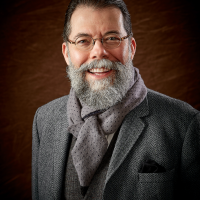Liberalism is arguably the dominant political ideology in the western world and claims a special pre-eminence in the English-speaking countries. To be liberal in the generic sense implies a certain generosity, an affinity for liberty, and a tolerance of differences of opinion. These are all good things, of course, and in these senses virtually anyone would wish to be known as liberal. But liberalism, with the suffix attached, implies much more, and here is where claiming the liberal label moves us into ideological—even mythological—territory.
As a set of political principles, liberalism began in the 17th and 18th centuries, with such figures as Thomas Hobbes (1588-1679), John Locke (1632-1704), Jean-Jacques Rousseau (1712-1778), and Immanuel Kant (1724-1804). As different as they were from one another, each of these thinkers played a significant role in developing liberalism in its earlier stages. Whereas pre-modern societies were heavily oriented towards tradition and governed by the need for strict social solidarity, the liberalism articulated by these figures raised the individual to the status of primacy. Society and political community alike were deemed the product of the collective assent of individuals voluntarily coming together to seek a more secure environment for pursuing their own self-interests, which were often defined economically.
Initially, this led to conceiving society as the result of a social contract, an agreement differing little from an ordinary exchange in the marketplace. Along with this came a centuries-long quest to reduce the genuine complexity of human communities—something I have labelled pluriformity—to a single form, namely, the voluntary association. A voluntary association is made up of individuals who have freely come together for specific purposes that they themselves have chosen. An amateur football club and a garden society are examples of the voluntary association. Members can join and quit at their discretion without having a significant impact on the health of the larger society.
However, liberals have tried historically to make even the most basic institutions, such as marriage, family, state, and church, into mere voluntary associations. Because institutions exist apart from our wills, liberals have sought to emancipate the will from the constraints they impose. This means that there is nothing unique about the state, and its central task of doing public justice is by no means intrinsic to its character as the state. The component individuals are within their rights to make of the state what they will, and if it fails to do their bidding, they are free to withdraw their consent and to start over again with something new.
Locke applied this voluntarism to the institutional church as well, stating that the church is “a voluntary society of men, joining themselves together of their own accord in order to the public worshipping of God in such manner as they judge acceptable to Him, and effectual to the salvation of their souls” (A Letter Concerning Toleration, 1689). This definition stands in considerable tension with a biblical understanding of the church as the covenant community of those called by God into a living relationship with him through Jesus Christ. Moreover, it reduces the gathered church community to the level of a bird-watching association, possessing no more authority over its members than they wish it to have.
Liberalism developed in two historic streams and thus took two forms: the continental European and the British. The former was most influenced by Rousseau and Kant and took a more evidently secularizing trajectory. It shaped the French Revolution of 1789, which attempted to erase the effects of Christianity and to rebuild society on an ostensibly rational basis. Although the Revolutionaries proclaimed liberty, equality, and fraternity as their aims, efforts to implement their vision inevitably clashed with the genuine liberty of European Christians to live their lives according to their deepest convictions.
In the British Isles, however, liberalism took a somewhat more benign form, with Locke, Adam Smith (1723-1790), and John Stuart Mill (1806-1873) playing decisive roles. In Great Britain, liberalism took the form of a political party with that name which had developed out of the Whig faction in Parliament during the 18th and early 19th centuries. Among its most famous leaders were William Ewart Gladstone (1809-1898) and David Lloyd George (1863-1945). Gladstone was a devout evangelical member of the established church and a serious Christian. Lloyd George was raised a Christian but apparently abandoned the faith in adulthood. The Liberal Party was eventually eclipsed by the rise of the Labour Party but continues to exist in the form of today’s Liberal Democrats.
Despite this apparent compatibility with traditional religious observance, even English-speaking liberalism tells a mythological story in which faith is increasingly pushed to the margins if not suppressed altogether. Moreover, the faith that liberals tolerate must acquiesce in its own demotion to a mere personal preference, to be balanced against a variety of other preferences in the marketplace of individual goods. It certainly should not make authoritative claims over its adherents that might constrain their right to choose. This suggests that continental and Anglo-Saxon liberalisms are ultimately on the same trajectory despite their different histories.
Five years ago, Tim Farron resigned as leader of the Liberal Democrats due to controversy over his Christian ethical beliefs. “To be a leader, particularly of a progressive liberal party in 2017 and to live as a committed Christian and to hold faithful to the Bible's teaching has felt impossible for me.” Sad to say, the liberal claim to tolerance falls short with respect to those who are committed to the authority of principles transcending the wills of individuals. But we should not be surprised at this, because every ideological vision is rooted in a story that rivals in some fashion the biblical story of redemption.
Liberalism is right to value individual liberty and freedom of choice, but it errs in assuming that these must consistently outweigh other legitimate considerations, including the authority of basic institutions. We can and must do better than this.

